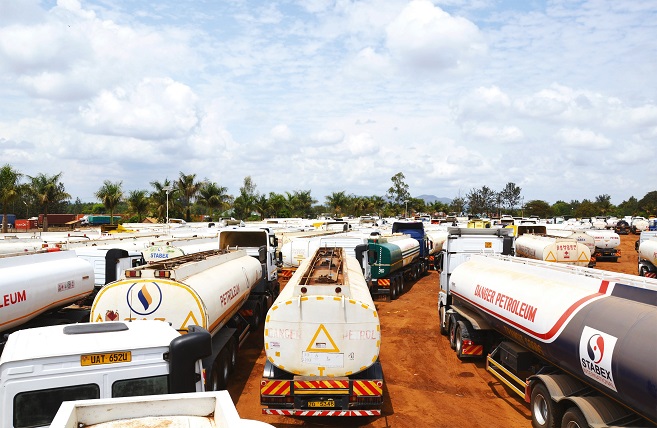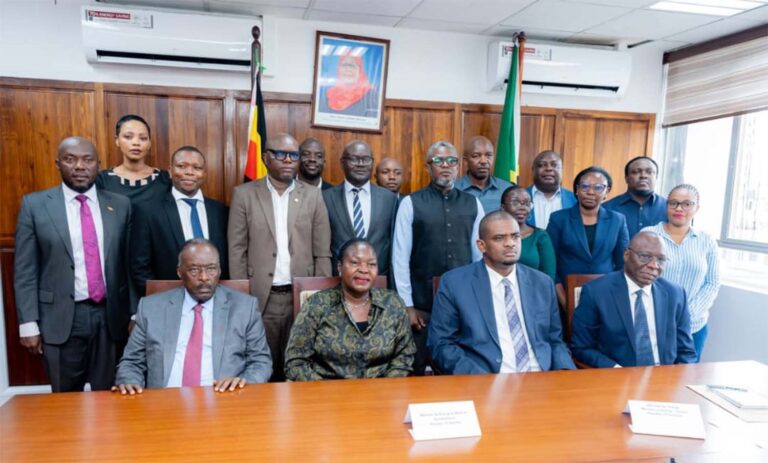
Fuel tankers at Malaba, Uganda's border with Kenya formed part of a cycle that sold petroleum products to Ugandans at hiked prices
Fuel tankers at Malaba, Uganda’s border with Kenya formed part of a cycle that sold petroleum products to Ugandans at hiked prices
HABARI DAILY I Kampala, Uganda I Uganda’s President Yoweri Museveni has taken to social media to announce a revolutionary government policy that aims to transform the importation of petroleum products, addressing long-standing concerns of overcharging.
The new policy, effective January next year, will see the Uganda National Oil Company (UNOC) take charge of sourcing and supplying petroleum products to licensed oil marketing companies in the country.
President Museveni, speaking on his social media platform X (formerly Twitter), expressed his dissatisfaction with the current system, revealing that Uganda had been overcharged for petroleum products from abroad.
He highlighted the magnitude of the issue, citing the importation of 2.5 billion liters per annum valued at approximately $2 billion.
The President recounted how, without his knowledge, petroleum products were being purchased from middlemen in Kenya, leading to significant losses for the country. He emphasized the need to cut out the cost created by middlemen and proposed importing directly from refineries abroad, using the infrastructure in Kenya and Tanzania.
Museveni disclosed that he became aware of this information from whistleblowers, and although he handed the matter to former Energy Minister Mary Kitutu, it was not effectively addressed. The President shared recent price disparities, revealing that middlemen were selling diesel at $118 per tonne, while bulk suppliers or refiners offered it at $83 per tonne.
To address these issues, President Museveni informed Ugandans that the government has now contracted bulk and refinery suppliers capable of serving the country at lower prices. He assured Ugandans of competitive petroleum products, emphasizing discussions with regional counterparts to ensure a seamless implementation of the new policy.
Despite the positive developments, President Museveni criticized what he termed as “internal parasites” launching a social media and mainstream media campaign against the government’s plan to combat overcharging.
He asserted readiness to confront these challenges and praised the contribution of Kenyan President William Ruto in handling the Kenyan part of the issue.
President Museveni signed off with confidence in the future success of Uganda’s refinery and assured inland East Africans of benefiting from competitive petroleum products.
The Petroleum Supply (Amendment) Bill, 2023, which paves the way for UNOC to take a central role in petroleum product importation, was approved by the Cabinet on October 23. The move is part of the government’s efforts to enhance the security of petroleum product supply, reduce vulnerabilities, and contribute to competitive consumer prices.
Energy Minister Ruth Nankabirwa assured active dialogue with Kenya for a seamless transition to the new policy, emphasizing the shared commitment to regional stability and economic growth between the two nations




